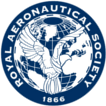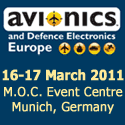Added on 11 April 2011 by gemma crabb
John Farley has been using flight simulators of one sort or another since 1958 to the present. The lecture will cover some of the remarkable changes in the nature and capabilities of simulators from his perspective as a user. He will discuss lessons that he has learned about simulation and offer some personal views concerning the way simulators are used in respect of both research and pilot training applications. In the context of research he suggests there are parallels in respect of the raw data produced from simulation and the raw data measured in wind tunnels. He will explain why in his view there are two types of simulator pilots which researchers need to bear in mind when considering the data they obtain from piloted experiments.
The Edwin A Link Lecture was established in 2007 to honour Edwin A Link, the distinguished pioneer of synthetic training. His remarkable foresight led to the creation of the Link Trainer, or ‘Blue Box’ as it came to be known, the precursor of today’s powerful synthetic training devices, most notably full flight simulators.
Tags: Edwin A Link Lecture, Flight Simulation, John Farley, raes, raw data in Flight Simulation and wind tunnels, royal aeronautical society
Added on 25 March 2011 by Gail Ward
The Sir Sydney Camm Lecture was established in 1971, following Sir Sydney Camm’s death in 1966, to commemorate his significant achievements in the field of aeronautical engineering.
Tags: aeronautical engineering, aerospace community, Air Chief Marshal Sir Simon Bryant, aviation, event, free event, lecture, named lecture, raes, royal aeronautical society, Royal Air Force, Sir Sydney Camm
Added on 22 March 2011 by Emma Bossom
Further details on this event will be available shortly.
Please do contact the Conference & Events Department for more information.
Tags: air transport group, debate, tony lucking
Added on 18 March 2011 by Emma Bossom
The Challenges & Opportunities Ahead
London Heathrow Airport is the world’s busiest international airport hub and the UK’s largest airport hub handling some 65.5 million passengers in 2010 – representing 30.2% of all UK traffic. Despite significant improvements in terminal capacity through the T5 and Heathrow East projects, the airport continues to be constrained by its runway system.
Tags: Air Transport, airport, challenges, future heathrow, heathrow, london, third runway
Added on 18 March 2011 by victoria white
Targeting & Delivering Effect for Future Force 2020
The Strategic Defence and Security Review (SDSR), Securing Britain in an Age of Uncertainty, outlines the needs of the UK’s future force structure. This structure, Future Force 2020, will be a highly capable force ready to react, at various levels of intensity, to the complex threat scenarios that may develop in future. It will be a flexible and expeditionary force based on fewer platforms that must be able to deliver effectors with a high degree of accuracy and in a timely manner by air, land or sea.
The threats Future Force 2020 is likely to meet will be challenging. For instance, the threat can use camouflage, concealment and deception measures, presenting targets that could be fleeting in nature. In addition, those threats may evolve more rapidly than our existing development cycles. Moreover, it is anticipated that allied operations will be constrained by rules of engagement where collateral damage is unacceptable politically or legally.
For this transition to become a reality, the challenges of affordability must be met to provide these capability needs. Can we develop or adapt systems, technologies and operations to achieve this?
In order to address these issues, a classified conference is being organised by the Royal Aeronautical Society’s Weapon Systems and Technology Specialist Group. This conference will focus on future operational needs, force structure or system concepts, targeting and weapon effects aligned to Future Force 2020.
Tags: 2020, farnborough, future effectors, future force, qinetiq, royal aeronautical society, SDSR, technology, weapons systems
Added on 08 March 2011 by Emma Bossom
From Pioneers to Presidents: Celebrating a Century of Women in Flight
Following the success of last year’s RAeS Women in Aerospace & Aviation Conference, the 2011 Networking Event will celebrate a century of women’s acheivements in flight.
Tags: Aerospace, aviation, event, first female pilot, pilot, royal aeronautical society, seminar, spitfire, women, women ferry pilot, women in aerospace, women in aviation, world war two
Added on 08 March 2011 by Emma Bossom
The Wonderful Women Ferry Pilots of the Air Transport Auxiliary
The Royal Aeronautical Society is offering a unique opportunity to meet the few surviving women pilots who ferried every type of military aircraft during World War II, including fighters, huge four-engine bombers as the sole pilot and even the first British jet-engine aeroplane. By the end of the war, ATA pilots had each flown dozens of different aircraft, sometimes several in one day, often never having seen the aeroplane before, far less flown it.
During the seminar, you will hear why the ATA was such a unique organisation, how the women ferry pilots were trained and what they achieved, what an RAF bomber pilot thought of the young women who delivered aircraft to his base, and finally hear from the so-called ‘Spitfire Women’ themselves about their memories of these extraordinary times and their experiences.
At the end of this special seminar, the Royal Aeronautical Society will be making a presentation to the ATA women pilots present to honour their extraordinary achievements.
Tags: Aerospace, aviation, event, first female pilot, pilot, royal aeronautical society, seminar, spitfire, women, women ferry pilot, women in aerospace, women in aviation, world war two
Added on 01 March 2011 by Emma Bossom
For more than half a century now, the International Council of the Aeronautical Sciences (ICAS) has provided for the world’s aerospace engineers, scientists, technologists and managers, the preeminent forum to present and discuss the latest developments in aeronautics. This remarkable apolitical organization founded by Theodore von Karman and his international colleagues, continues to build on its impressive heritage, to be even more relevant to the global aerospace and aviation industries. This world congress staged biennially by ICAS is the key opportunity for those committed to serving those industries to meet, present, discuss and create opportunities that can only be done in such an international environment.
Tags: Aerospace, Australia, Brisbane, Call for Papers, conferences, Engineers Australia, event, ICAS, RAeS Australia Division
Added on 21 February 2011 by gemma crabb
Autumn 2011 Flight Simulation Conference
CALL FOR PAPERS - The Contribution of Flight Simulation to Aviation Safety
Flight Simulation’s broad role in developing, maintaining and enhancing flight safety is well recognised, but have advances in simulation technology and capability been matched by corresponding improvements in the way we conduct training?
Today’s environment is one of increased cockpit automation, airspace congestion, ultra long haul operations, enhanced flight envelope protection and arguably reduced levels of actual manual flying experience in the new generation of flight crews. The levelling off of hitherto falling accident rates, and the changing balance of the causal factors behind them, illustrated by a number of recent highly publicised accidents and incidents, suggest that there are areas for improvement, and that we must continue to strive to further improve our safety record.
The Royal Aeronautical Society Flight Simulation Group has recognised this, and for the past 5 years has overseen several international, multi-disciplinary study groups. The latest one of these is the International Committee for Aviation Training in Extended Envelopes (ICATEE). Its objective is to look at all aspects of live and synthetic training for anticipating, recognising, avoiding, and recovering from unusual attitudes and flight situations, aircraft upset, and loss of control in flight. ICATEE will bring together the best practice in current education, flight instruction and training, updated by the latest research and a rigorous methodology.
Additionally, the IATA International Training and Qualification Initiative (ITQI) promises improvements in flight crew knowledge, skills and attitudes and hence safety through evidence-based competency training regimes. These have far reaching implications on the way flight crew training is conducted, from ab-initio through to type rating and recurrent training, including instructional methods and standards.
While both ICATEE and ITQI are framed around civil large aircraft training and safety requirements, they have the potential to influence military training regimes, which increasingly rely on simulation to maintain standards and mission readiness. At the other end of the spectrum, low cost FSTDs, and new digital interactive media integrated into educational and training simulations, are increasingly being used to address the comparatively poor safety record of General Aviation (GA), both fixed- and rotary-wing. In other aspects of simulator-based training, advances in technology and functionality offer other benefits which can be harnessed to address more specific safety issues.
The conference will principally examine how all these initiatives link together through the use of flight simulation. A significant part of the Conference will be dedicated to the detailed reporting of both the Technical and Training sub-groups of the ICATEE. The sessions will address the approach taken to analyse the training requirements and to develop the rationale for a suitable range of live and simulator-based education, training, and instructional courseware. The Technical subgroup will present its recommendations for data collection and validation in support of enhanced simulator modelling and cueing systems. Papers are also being invited from the IATA ITQI team.
This Royal Aeronautical Society Flight Simulation Conference also invites papers on other safety related issues, in addition to IATA ITQI and ICATEE, such as:
- Simulator technological improvements to meet the safety-driven training and instructional challenges
- Low cost simulation and its potential contribution to safety
- What does GA – fixed wing and helicopters - need from simulation?
- How can flight simulation make a significant reduction in rotary wing accident rates?
- Instructor Qualification and Accreditation
- Human Factors and the Psychological Aspects of Simulator-based training.
- The Live/Synthetic Balance
- Leveraging the next generation in the gaming industry to enhance mission rehearsal training
- New Electronic and Distributed Media, such as games, Social Networks, and the iPad, and their implications for Training and Safety
The dealine for received abstracts is Thursday 21st Apri 2011.
Kindly sponsored by:
Kindly supported by:
Do you know somebody that this event would appeal to? Share it on your favourite services below
Tags: Aviation Safety, civil arena, conferences, Flight Operations, Flight Simulation, group conferences, IATA, ICATEE, ITQI, raes, royal aeronautical society, safety analyses, simulation group
Added on 17 February 2011 by Emma Bossom
The Sopwith lecture was established in 1990 to honour Sir Thomas Sopwith CBE, Hon FRAeS. In the years prior to World War I, Sopwith became England’s premier aviator and established the first authoritative test pilot school in the world, he also founded England’s first major flight school. Between 1912 and 1920 Sopwith’s Company produced over 16,000 aircraft of 60 types.
Tags: aerospace community, aviation, Boeing Commercial Airplanes, Boring, event, free event, Jim Albaugh, lecture, named lecture, raes, royal aeronautical society, Sopwith
Added on 14 February 2011 by gemma crabb
The Blades Aerobatic Team and 2Excel Aviation
The Blades Aerobatic Team formed in 2006, and since then has displayed to over 18 million people and flown over 3000 corporate passengers on formation aerobatic flights. Operating as the UK’s only full-time civilian aerobatic team and the World’s only globally accredited aerobatic airline, Myles will explain the significance and importance of this.
Myles Garland will talk about training, how the team design and incorporate new manoeuvres into the display, and how The Blades approached their first display season in a high- performance propeller aircraft having flown thousands of hours in fast jets.
The Blades parent company, 2Excel Aviation has expanded rapidly since 2006 and now delivers a wide range of aviation based products. From ‘Unforgettable Events’ such as a 300 person Summer Ball, to trials and test flying in their 2 PA31 Navajo aircraft, to operating several luxurious Beech King Air 200s for their clients, 2Excel is an extremely agile company and Myles will discuss how these capabilities all come together to make 2Excel and The Blades truly unique.
About the speaker
Sqn Ldr (Ret) Myles Garland
Blade 1 and Team Leader of The Blades Aerobatic Team
Myles Garland was born in Vancouver in 1971. Educated at St. Boniface’s College, Devon, Myles developed his keen interest in aviation and was subsequently awarded a Royal Air Force Flying Scholarship. He joined the RAF immediately after completing his A-levels. After flying training on both the Jet Provost and the Hawk, Myles’ operational career began on the Harrier GR7. He was posted to No1 (Fighter) Squadron based at RAF Wittering and took part in exercises all over the world. In 1997 he embarked with the Squadron onto HMS Illustrious for the first Harrier GR7 deployment to an Aircraft carrier. Shortly after, having proven the concept, the Squadron were deployed to the Gulf onboard HMS Invincible during Operation SOUTHERN WATCH.
In 1999, as a Qualified Weapons Instructor on the Harrier, Myles took part in operations over Kosovo and the former Yugoslavia where he was ‘Mentioned in Dispatches’ for gallantry. On completion of his first operational tour, Myles was posted to instructional duties 20 (Reserve) Squadron teaching ab-initio and post graduate Harrier Pilots the art of weaponeering and tactics.
In 2000, Myles was successful in applying to the Royal Air Force Aerobatic Team and flew with the Red Arrows for the 2001-2003 display seasons. During his time with the Reds, Myles was promoted to Squadron Leader aged 29 and chosen to fly as part of the famous ‘Syncho Pair’.
On leaving the Red Arrows Myles returned to operational front-line duties on the Harrier as a flight commander then Deputy Squadron Commander on No 3 (Fighter) Squadron based at RAF Cottesmore.
In 2005 as 3(F) Squadron disbanded as a Harrier Squadron before immediately re-forming as a Typhoon Squadron, Myles left the RAF with over 3000 fast jet flying hours and became one of the founding members of The Blades.
This will be Myles’ sixth year with The Blades and his third year as Blade 1. During his time with The Blades he has flown in a number of positions including 2 years as Blade 4 developing, inventing and performing the dynamic solo manoeuvres.
This RAeS General Aviation Group Evening Lecture is organised and held in partnership with The Guild of Air Pilots & Air Navigators (GAPAN).
Refreshments will be served from 17.30hrs and the lecture will commence at 18.00hrs.
Please RSVP to the Conference & Events Department at [email protected]
Tags: 2Excel Aviation, accredited aerobatic airline, aerobatic flights, air displays, gapan, General Aviation Group, Guild of Air Pilots & Air Navigators, Myles Garland, propeller aircraft
Added on 13 January 2011 by Emma Bossom

The French Air & Space Academy will be visiting the UK and will host an informative evening of aerospace lectures. The evening will commence with a presentation of the Air & Space Academy hosted by Gerard Brachet and will be followed by three short presentations by aerospace experts.
Tags: AAAF, AAE, academie de l'air et de l'espace, academy of air and space, ACARE, Aerospace, air, Alain Garcia, David Marshal, france, Iain Gray, lecture, raes, research, royal aeronautical society, Space, technology, Technology Strategy Board
Added on 12 November 2010 by Sam Phillips
AEROSPACE FOR EUROPE – MORE THAN JUST FLYING
High Value, Low Carbon, Europes Future
The most important multistakeholder high level roundtable congress in Brussels in December 2010.
This is the aerospace event of the year where decision maker of the most leading European industry, politics and research meet.
Change! Innovation! Vision 2050!
Tags: Aerospace, aviation, Brusells, conferences, Europe, event





